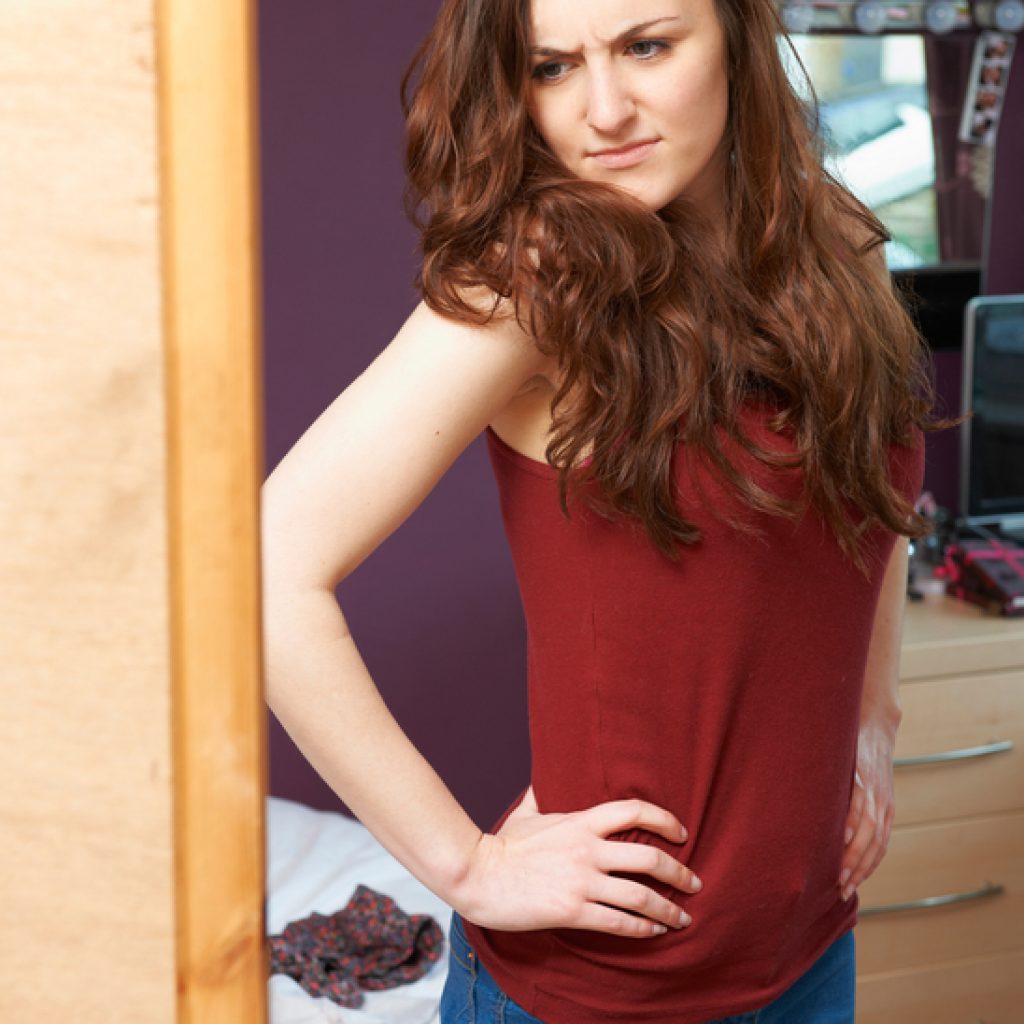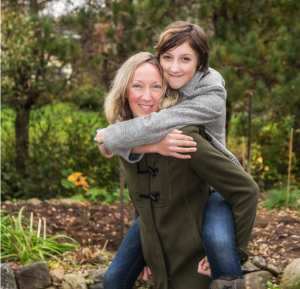
Everyone worries about what they look like, don’t they? Immersed in a culture that idealises looks, worrying about weight and appearance is so all-pervasive that we hardly question it. The focus ought to be on what creates this anxiety, not on how we can live with it or how we can reduce it by losing weight and altering our appearance.
Before they even reach their teens, most girls have a troubled relationship with their bodies. They worry about how they look, being fat, having hair in the wrong places, not being tanned, their skin, hair, nose, bum. Many teenage girls already have a regime of painting their faces, shaving and coiffing. Most girls have tried skipping meals and eating less in an attempt to be thinner. Children are fed a constant diet of images showing them how women are meant to look and behave. Greater importance seems to be given to how we seem and what we have, rather than what we do or who we are.
We surround our girls with images of idealised female perfection. Just as they become more curvaceous and hair is growing in new places, they are also contending with spots, greasy hair, mood swings and self-consciousness. And, as if that isn’t enough, they are bombarded with messages that they must work hard to get their bodies looking a certain way. Hair must be removed, coloured, straightened, styled. Skin must be clear, tanned, soft. Tummies flat, hips narrow, waist trim, legs long. With images now digitally altered, girls strive for a type of female beauty that is impossible to attain.
Women’s bodies are used everywhere to sell cars, perfume and chocolate, on billboards, magazines and television. On the screen our heroines are slim, feminine and blemish-free. Models on the catwalk and in the shop window are dangerously underweight. Pop stars gyrate provocatively, and women depicted in computer games have taken Barbie to a whole new level of improbable proportion, peddling fake dreams of mastery, agility and sensuality. You see it without looking.
The boys are watching online porn and then want their girlfriends to re-enact what they have seen. They expect long, slender legs, big breasts, slim waist and no body hair. Women’s bodies are revealed to sell all kinds of products, but frowned upon if seen breastfeeding. Women in the west have the lowest body-confidence, with few able to say they like their bodies. Girls who start life loving their big tummies and their fascinating toes learn to judge and find fault with their figures. Life-threatening eating disorders are on the increase, and women mutilate their bodies, spending increasing millions on cosmetic surgery.
No matter how much you love her, love the way she looks and let her know this, other forces are at work that will cut across all this and destroy your daughter’s easy self-acceptance.
How you can help your girl to keep loving her body:
• Bother to take care of yourself. It really works! Good food, sleep and exercise will increase your body-esteem. It sets an example.
• Practise looking at your body in the mirror with kind eyes.
• Exercise and eat for health rather than to lose weight.
• Never criticise your body in front of your daughter.
• Never criticise your daughter’s body.
• Limit your spending on your appearance.
• Reduce your exposure to glossy magazines and celebrity gossip.
• Fill your life with real people.
This is how we liberate ourselves and our daughters too!
Chapter seven of Kim McCabe’s book ‘From Daughter to Woman‘ is full of tips and tools for helping your daughter to feel good about herself.



No comment yet, add your voice below!